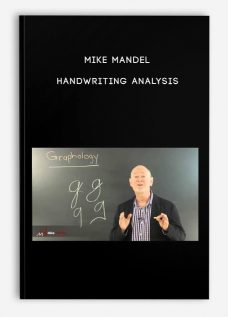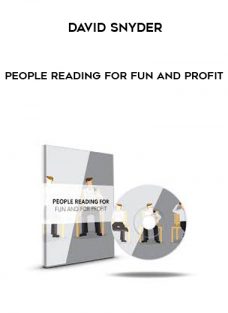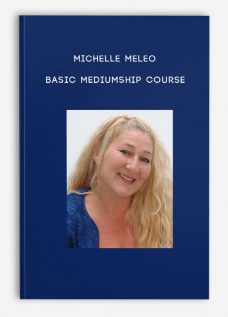Description
Superbrain! Memory training With Boris Konrad – Instant Download!
Superbrain! Memory training with Boris Konrad
Learn how to improve your memory, remember names, numbers, facts and more
You can improve your memory! By a lot! Learn how from the Memory World Record Holder and Neuroscientist Dr. Boris Nikolai Konrad
Dr. Boris Nikolai Konrad does not only research superior memory, he has one himself. The neuroscientist investigates the neuronal basis of memory training at the Donders Institute in Nijmegen and is a multiple times memory World Record holder, winner of the TV show ‘The Brain’ in Germany and also known from ‘Wedden Dat Ik Het kan’ (SBS 6).
In this course, he will share all the techniques that make such performances possible and explain the neuroscience of superior memory.
Remembering names, numbers, and presentations easily – anyone who can do this has a clear advantage. In this course, you will learn how to remember names, how to give presentations and speeches without notes and how to easily store facts, information, and definitions in your head. You will also learn what you need to do to remember something permanently and how to target your long-term memory directly.
The focus is always on the practical application. There will be many exercises because the goal is that at the end of this course you will experience and appreciate your future great memory. By then, you will know how to apply the methods you have learned!
When memory artists bewilder their audience, hardly anyone knows that these skills are based on techniques that are thousands of years old. They can be learned in reasonably short time with expert instruction. What is used in memory sports can also be used for typical challenges in professional and daily life.
Memory trainer and neuroscientist Dr. Boris Nikolai Konrad has himself set different memory world records. In 2015, he broke his world record by remembering 215 names to the matching in just 15 minutes. He also had set a record for memorizing numbers, words, capital cities and birthdates.
This course contains all the methods as well as numerous practical examples which enables him to do this and will enable you to do the same. The most important message from the memory expert is: “A good memory is an ability that can be learned! Everyone can massively improve his or her memory!”
Your investment
The prices for the different packages as well as the early bird offer are listed below. However: Please do not buy this course if you cannot spend sufficient time on it. Indeed, the course is a financial investment, but it only works if you are also willing to invest some time. How much?
Well, that will depend a bit on your learning speed. You will receive above 6 hours of video course, out of which some parts are advanced or bonus material you do not necessarily need to follow to improve your memory a lot. However, just watching the videos will not do the deal. In my experience, spending a couple of minutes a day or a few times a week over a couple of weeks will bring you leaps forward. In our research for example, participants trained for six weeks at home, up to 30 minutes per day after an initial instruction day that you can compare to watching the videos. In six weeks, 30 minutes per day are no requirement. 12 weeks of 30 minutes every other day or a bit less will give you the same outcome.
In summary – I do not have a magic pill. This is a real course, based on science and over 15 years of experience I have as memory athlete and trainer. It comes with techniques that need some training but lead to very real and great results!
Your Instructor

Boris Nikolai Konrad
Boris Nikolai Konrad is a neuroscientist at Donders Institute for Brain, Cognition and Behaviour in Nijmegen. He is also a World Memory Team Champion, 4x Guinness World Record holder for memory and works internationally as keynote speaker, memory trainer and author.
Course Curriculum
Introduction – Please read first
Please Read (updated)
Lets begin! (6:36)
What is memory?
Where in the brain is the memory? (14:06)
Different types and tImescales of memory (17:17)
Simple Memory Techniques
Thinking in Images (10:16)
Story method (16:52)
Keyword Mnemonic (18:01)



